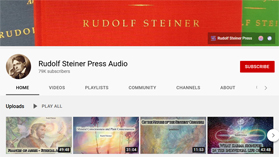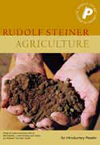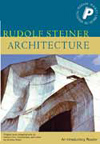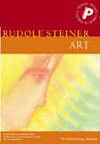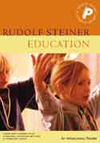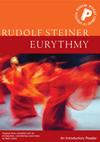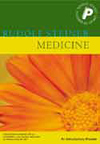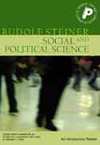
-
POCKET LIBRARY OF SPIRITUAL WISDOMPRACTICAL SERIES
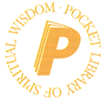
Rudolf Steiner, the often undervalued, multifaceted genius of modern times, contributed much to the regeneration of culture. In addition to his philosophical teachings, he provided ideas for the development of many practical activities, including education - both general and special - agriculture, medicine, economics, architecture, science, religion and the arts. Today there are thousands of schools, clinics, farms, and many other organizations that are founded directly on his principles.
Steiner's original contribution to human knowledge was based on his ability to conduct 'spiritual research', the investigation of metaphysical dimensions of existence. With his scientific and philosophical training, he brought a new systematic discipline to the field, allowing for conscious methods and comprehensive results. A natural seer from childhood, he cultivated his spiritual vision to a high degree, enabling him to speak with authority on previously veiled mysteries of life.
An Introductory Reader
Compiled with an introduction, commentary and notes by Richard Thornton Smith
Rudolf Steiner, the often undervalued, multifaceted genius of modern times, contributed much to the regeneration of culture. In addition to his philosophical teachings, he provided ideas for the development of many practical activities, including education - both general and special - agriculture, medicine, economics, architecture, science, religion and the arts. Today there are thousands of schools, clinics, farms, and many other organizations that are founded directly on his principles.
An Introductory Reader
Compiled with an introduction, commentary and notes by Andrew Beard
The origins and nature of architecture; The formative influence of architectural forms; The history of architecture in the light of mankind's spiritual evolution; A new architecture as a means of uniting with spiritual forces; Art and architecture as manifestations of spiritual realities; Metamorphosis in architecture; Aspects of a new architecture; Rudolf Steiner on the first Goetheanum building; The second Goetheanum building; The architecture of a community in Dornach; The temple is the human being; The restoration of the lost temple.
An Introductory Reader
Compiled with an introduction, commentary and notes by Anne Stockton
The being of the arts; Goethe as the founder of a new science of aesthetics; Technology and art; At the turn of each new millennium; The task of modern art and architecture; The living walls; The glass windows; Colour on the walls; Form - moving the circle; The seven planetary capitals of the first Goetheanum; The model and the statue 'The Representative of Man'; Colour and faces; Physiognomies.
An Introductory Reader
Compiled with an introduction, commentary and notes by Christopher Clouder
A social basis for education; The spirit of the Waldorf school; Educational methods based on anthroposophy; The child at play; Teaching from a foundation of spiritual insight and education in the light of spiritual science; The adolescent after the fourteenth year; Science, art, religion and morality; The spiritual grounds of education; The role of caring in education; The roots of education and the kingdom of childhood; Address at a parents' evening; Education in the wider social context.
An Introductory Reader
Rudolf Steiner's original contribution to human knowledge was based on his ability to conduct 'spiritual research', the investigation of metaphysical dimensions of existence. Samples of his work are to be found in this introductory reader in which Beth Usher brings together excerpts from Steiner's many talks and writings on Eurythmy. The volume also features an editorial introduction, commentary and notes.
An Introductory Reader
Compiled with an introduction, commentary and notes by Andrew Maendl, MD
Understanding man's true nature as a basis for medical practice; The science of knowing; The mission of reverence; The four temperaments; The bridge between universal spirituality and the physical; The constellation of the supersensible bodies; The invisible human within us: the pathology underlying therapy; Cancer and mistletoe, and aspects of psychiatry; Case history questions: diagnosis and therapy; Anthroposophical medicine in practice: three case histories.
An Introductory Reader
Psychological cognition; The social question; The social question and theosophy; Memoranda of 1917; The metamorphosis of intelligence; Culture, law and economy; Central Europe between East and West.

